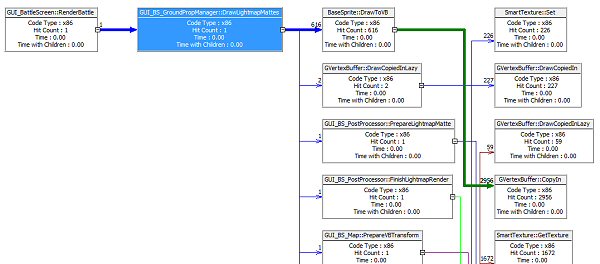Do you know how your game works? I bet you *think* you do. And if you do, there are never surprises when you suddenly take a look at a frame of it being rendered. Invariably, mistakes mean stuff works differently to how you intended it to.
I use AQTime, which is pricey as hell, but fantastic, as a profiler. You can control it from code too, so I can pause my game mid-battle, hit ‘F’ to go one frame-advance, and that frame is profiled by aqtime. It then will dump tons of stats, telling we call times and counts for every function (or even line) and let me see this:

This chart immediately tells me that some lightmapbuffer sprite code was being run. It should be skipped in daylight levels, so clearly I have a bug. And that’s before I even begin to look at performance optimisations in this frame.
If you write big complex stuff and don’t have a professional quality profiler, you need one. They are absolutely fantastic.